Continuing our series of features on the climate, where we discuss the climate crisis with Croydon businesses and individuals, this week we chat with founder of Sustainable Thornton Heath, Ian Morris, ahead of their next event this Saturday, 20 May.
Croydonist: Who is behind Sustainable Thornton Heath and how did it start?
Ian: I first conceived of Sustainable Thornton Heath in 2019 when I was really struggling to deal with the reality of the climate & ecological crises, and decided that I needed to find ways of channelling the anxiety that was consuming me. I had linked up with other groups and organisations that were working towards improving the situation in some way, but I had a strong urge to do something at a very local level – either in my own town, or even on my street. I reached out on a couple of Facebook groups in Thornton Heath to ask if anyone else was interested in setting up a group that focused on making the town a more sustainable place, and got a few positive responses. That led to a group of us meeting up around our dining room table and talking about what we should do – four of those people are still on the management committee; Edyta, Gaetane, Marian and myself. A few weeks later we had come up with a name, decided on an entity type, agreed on a constitution, and elected the first management committee. Thanks to Joseph Jeffers at local charity ASKI, we managed to get access to a free space in town on Sunday evenings where we started to hold ‘conversations’ on various sustainability topics. Thanks also to Croydon Voluntary Action (CVA) we received a small start-up grant that allowed us to provide free hot drinks at these meet-ups, which are very important. Joseph and CVA helped us establish ourselves, which we will never forget. You need people and organisations like these to give you an initial foot up, as there’s such little support out there from the state, which is a tragedy of not having the commons in my humble opinion.
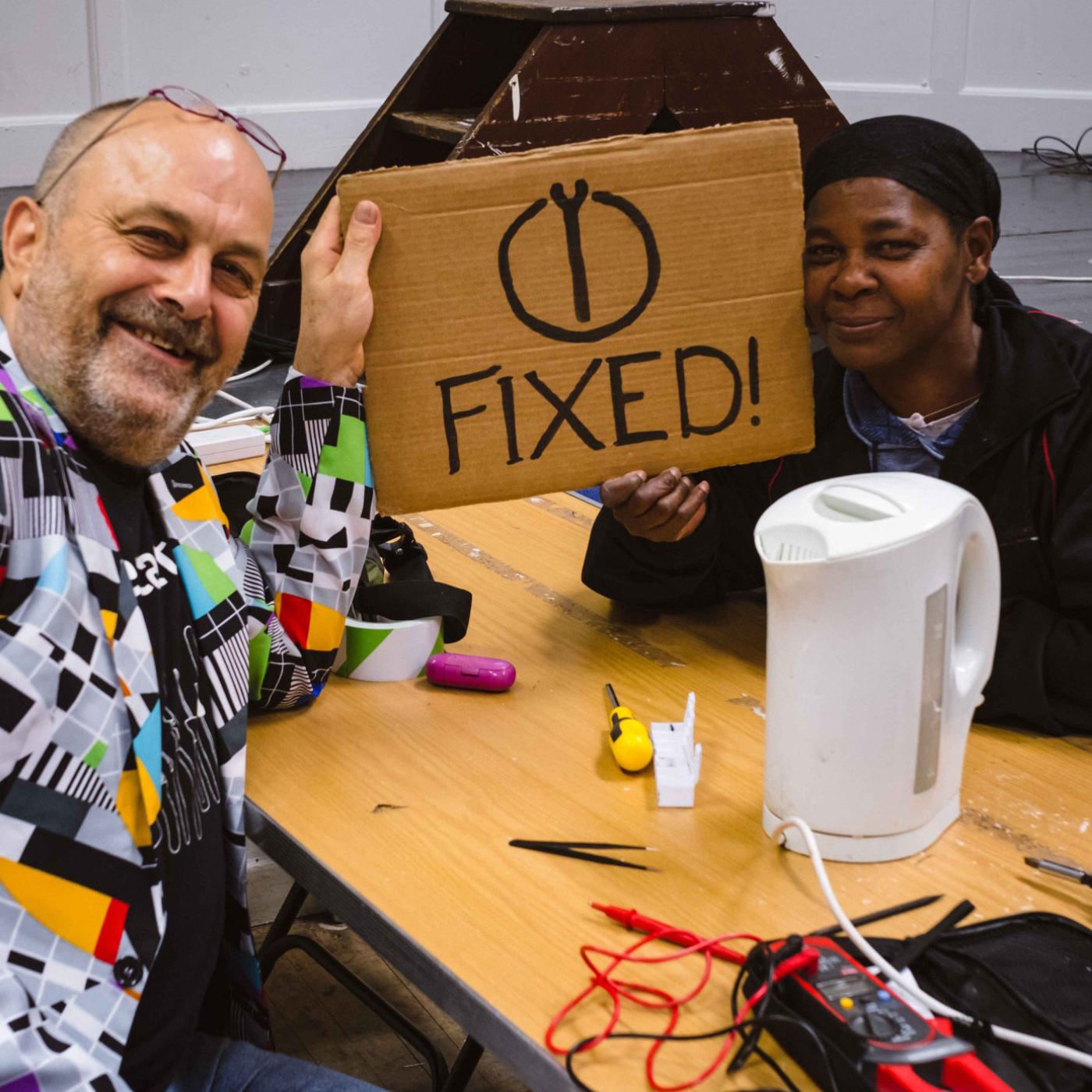
Croydonist: Do you have a business background in sustainability?
Ian: My educational background is in engineering and management, though after starting my professional career in a multinational engineering firm, I quickly became very disillusioned and after what I call a very introspective phase, decided on a career in international development. I took around a 95% pay cut and went to volunteer in Bangladesh for 2 years, and then spent the next 15+ years working in slum redevelopment finance and Fairtrade. It was during my work in the Fairtrade sector that I first started to work on environmental issues, with a focus on the circular economy and waste-to-energy technologies for small-to-medium sized enterprises in developing & emerging economies in the food processing industry. However, it wasn’t until seeing that first major protest by Extinction Rebellion in April 2019 that the reality of the climate & ecological crises really dawned on me, and I felt initially overwhelmed and paralysed, and then compelled to act. I also decided to reorientate my career away from international development – which I still care profoundly about – and towards sustainability and the very precious environment on which we all depend. I now work for a charity that is focused on poverty and the environment in the UK.
Croydonist: Tell us about your pop-up Sustainable Living Hubs.
Ian: The ‘conversations’ I previously mentioned on Sunday evenings were engaging and felt good, but the numbers were low (around a dozen or less), and then COVID hit. We did restart the discussions online during the pandemic, but it was never the same, and numbers were even less. We also felt that the people who would come to a meeting to talk about sustainability were already ‘on the sustainability journey’, and whilst there was still value in this, we wanted to reach out to others who were not. We started a monthly stall outside the local Tesco to do community engagement, which was useful from an awareness raising perspective, but as a community group we needed activities that people could actually engage in. Then a new funding opportunity came up, and an old idea I had had soon after we established the group came up to hold a free, regular community event around sustainable living, where people could actually engage with related topics in a tangible way (e.g. buying refills, tasting vegetarian & vegan food and swap unwanted items such as clothing etc). We reached out to the community with the idea, got feedback and had a video call with interested people to discuss the idea in a bit more detail. As a result we designed a project for holding regular ‘Pop-up Sustainable Living Hubs’ and submitted a funding application. Within just a few days, we were told our application had been approved, and that the grant was on its way. We were elated, though this was accompanied by the reality that we were going to have to deliver these events now, which were going to be a major undertaking!
We held our first hub in March 2022, and delivered them monthly (except for the holiday months of August and December) until February 2023. Hubs have evolved based on our learning, feedback from visitors, volunteers and organisations that have a presence, and new relationships and partnerships that have developed. They will continue to evolve too. We have been successful in raising a further grant, which allows us to continue to hold hubs, probably until around the end of 2024, which is a really nice position to be in, though we’ve worked damn hard to achieve this. For a few reasons, however, we have dropped the frequency down from monthly, to bi-monthly, so going forward there will be 6 hubs a year rather than 10 hubs a year.
Hubs include too much to detail here, but as a starter for 10 there is: free help with repairs of cycles, electricals & electronics; free clothes mending skill sharing; free information & advice on home energy, plant-based diet, food growing & greening, and ethical financial services rankings from Ethical Consumer magazine; a free workshop on a fun theme, often delivered by a local artisan or business; free family activities; refills of popular body care & cleaning products; vegan refreshments; and an unwanted tech drop-off point for repair & distribution to people in need in the community, or for recycling.
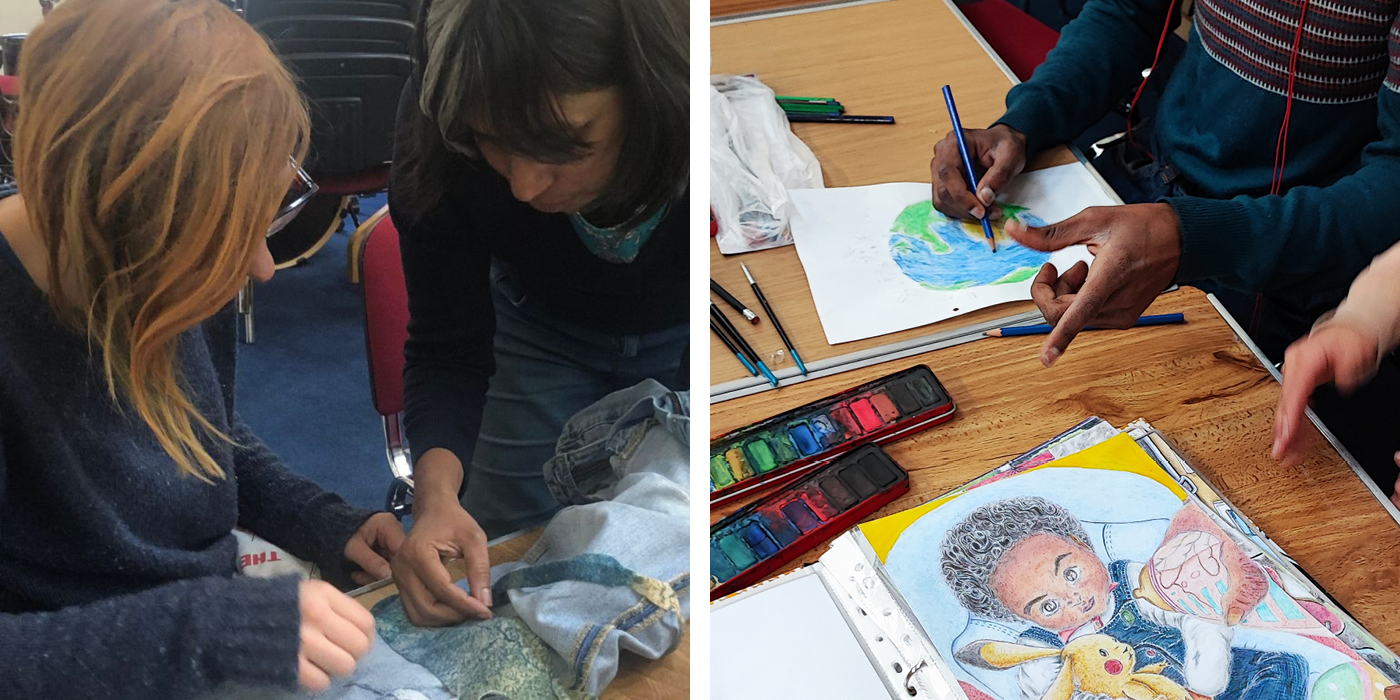
Croydonist: What other organisations do you collaborate with?
Ian: Hubs were also designed to act as a bit of a showcase for other local groups, organisations and even businesses that operate in the area of sustainability and the environment, and we have or have had actors like Croydon Community Energy, Clear Community Web, Croydon Vegetarians & Vegans, Croydon Greenpeace, eCO2 Solutions, Hamsey Greens and Upper Norwood Library Hub. However our links go much wider than this, both within and outside of Croydon, and we have invested a huge amount of time networking. It’s paid off, though it is a never-ending task, but it takes a good amount of time to build a network and get known.
Within the thematic space, we have close relationships with Croydon Community Energy, Croydon Climate Action, Croydon Greenpeace, Croydon Extinction Rebellion, Croydon Cyclists, to name a few. We also have links with Thornton Heath Community Action Team (THCAT) at the local level, as well as some local churches and schools. Croydon Voluntary Action (CVA) has been a continued source of support and instrumental in helping us establish and grow. It’s really sad to see support from Croydon Council for CVA and the wider sector get stripped away – it’s another case of a government that knows the cost of everything but values of nothing.
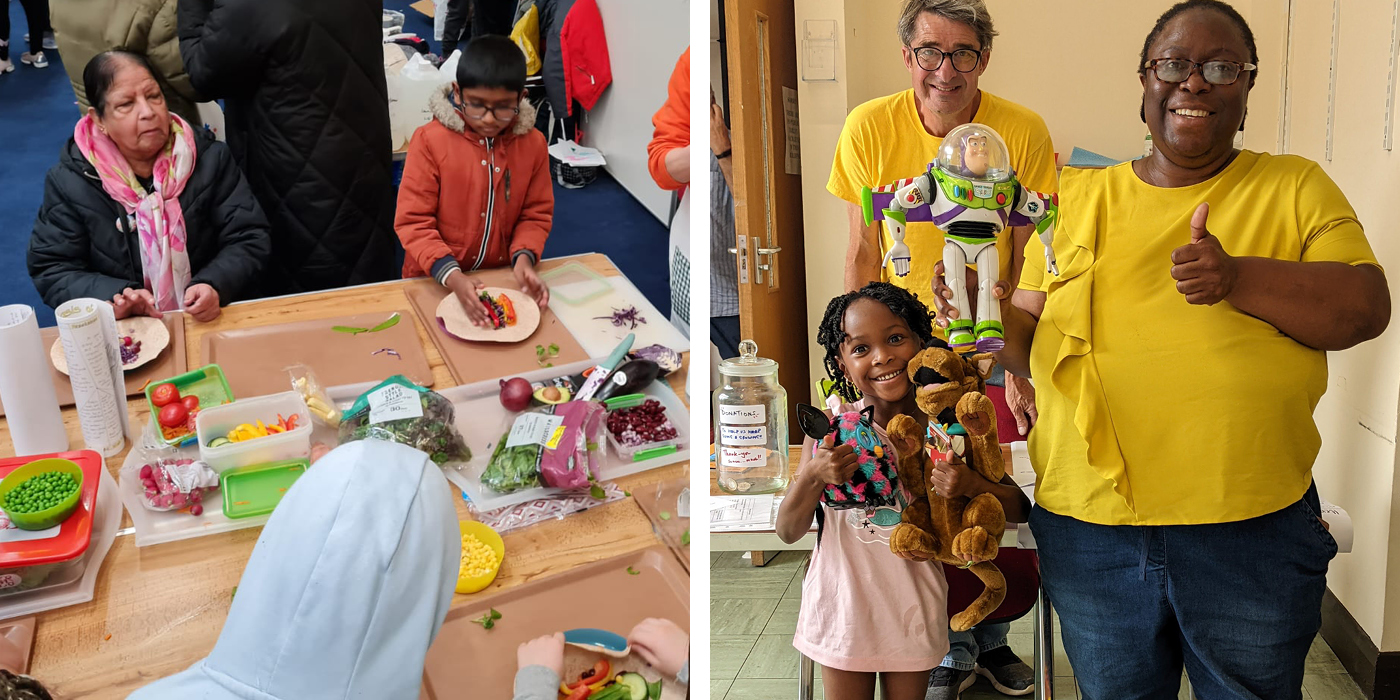
Croydonist: How can local residents get involved in the hubs?
Ian: In short, lots of ways! We are so, so blessed to have a small army (around 20!) of amazing people volunteer at each of our hubs, without which hubs would simply not be possible. Funding is important, but the biggest resource that enables hubs to happen – and this is true of many such activities at a community level – is volunteer time, skills and commitment. If we costed this up, it would dwarf the funding we have significantly.
We get lots of repeat volunteers who tell us that they really enjoy hubs as the events have such a welcoming, friendly and positive vibe, and you really do leave on a high – I’m often reeling from them (in a good way) for hours afterwards, and feel so empowered.
But we are always on the lookout for more volunteers, partly so we don’t rely on the same people all the time, but partly because we can achieve more by doing so. There are skilled and unskilled roles at hubs, but we are particularly in need of more skilled volunteers in areas like: (1) running our social media & digital marketing; (2) taking video clips & making engaging video reels; (3) helping people fix their electronics & electricals; and (4) sharing hand-sewing skills with people to help them learn how to mend their own clothes. Non-skilled roles include: (a) helping to leaflet outside the venue during hubs; (b) helping out with our ‘Family Zone’; (c) helping serve refreshments; and (d) helping run our ethical financial services table (you don’t need to be a financial whizz!).
We also need people to visit of course, as well as to help us spread the word as wide as we possibly can! (well, within North Croydon at least).
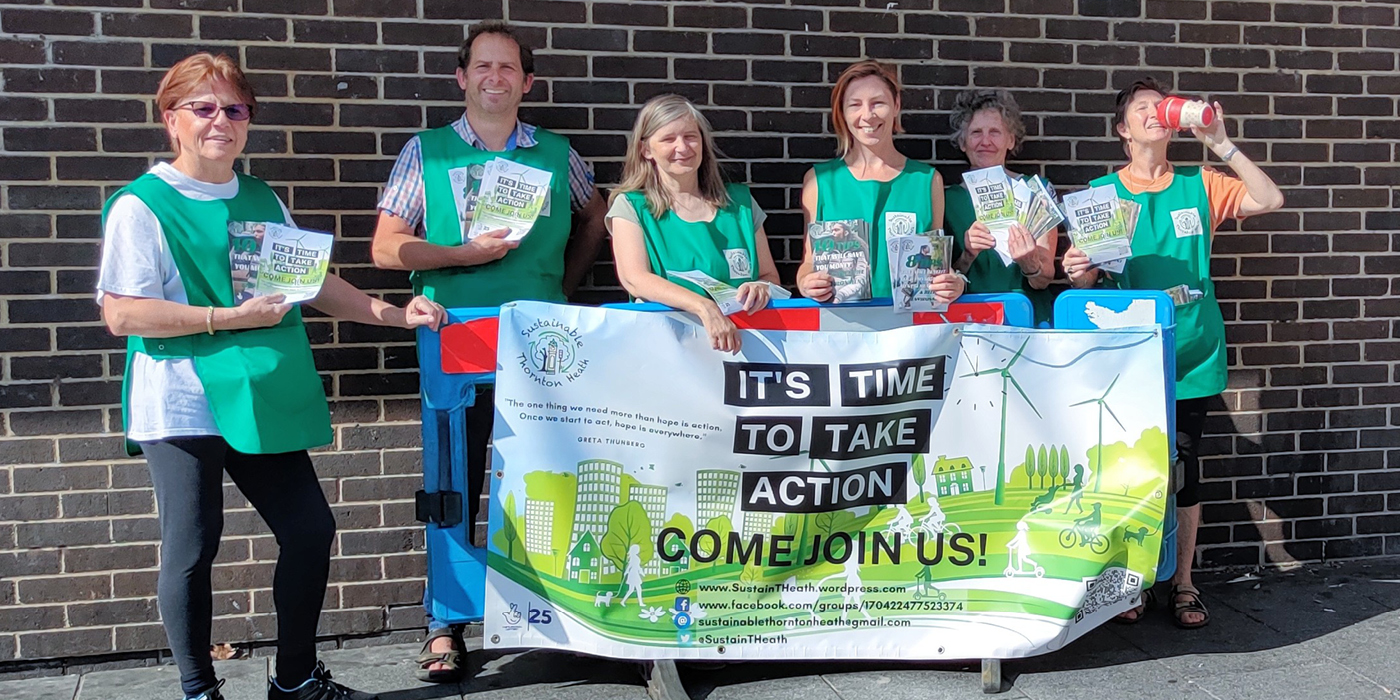
Croydonist: Tell us something you learned at one of your hubs that you didn’t already know?
Ian: Whilst I feel I care as passionately about social issues as I do about environmental issues, my focus veers more towards the latter – though anyone that understands these issues well, knows that the two are intertwined. It never occurred to me that the hub would become as much about community and social impact, as it would about environmental impact. The feedback forms we ask as many people as possible who walk through our doors to complete, consistently show very clearly how much people enjoy the welcoming, friendly and communal atmosphere that are the hubs. As well as getting a lot of repeat volunteers, we also get a lot of repeat visitors. I know from working in charity, social enterprise & community for the last 20 years how hard it is to understand and measure impact, but two stories from our hubs really stick in my mind. The first one was a father and his two daughters, who, for some reason linked to a burglary, had been left homeless and without any spare clothes. They saw the clothes swap at our hub, but had nothing to give and were ready to leave. When we learned of their story we pulled them back in and told them to take whatever they wanted, without any need for swapping. The father and daughters were so happy and relieved, it really touched all of us that day. The second was a lady that relied on her laptop to earn money, but it had broken and she did not have the funds to get it repaired. She brought it to our ‘Restart repair party’ to get free help to try and fix it, and one of our volunteer fixers took a look at it. Thank goodness the laptop was able to be fixed, and again the lady was so happy and grateful, and said something like ‘you have literally saved me’. It’s these times when you realise and say to yourself, ‘this is why we do this’. We all need help at times.
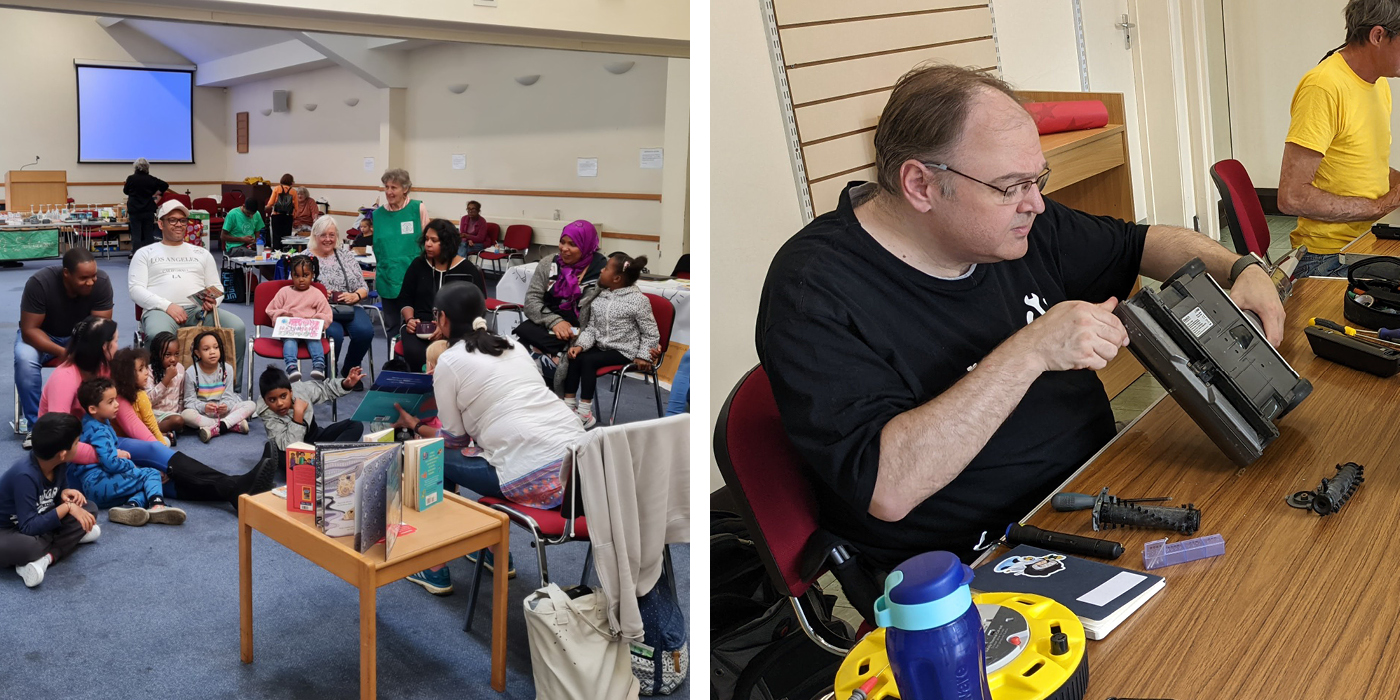
Croydonist: How important is sustainability to you?
Ian: Humanity now faces the real prospect of extinction. This is not some outlandish, radical, extreme opinion, it is what almost 100% of the world’s climate scientists are warning of, as well as the United Nations, our national treasure Sir David Attenborough, and many more. It is very tempting to put it at the back of our minds, tell ourselves that we are just one person, that it is not our fault or even problem, and to scoff at or even vilify those who are terrified by the prospect of what the climate & ecological crises will have on life on earth in the future. Forget the future in fact, it’s already happening, and not only even in distant, far-away lands that we can feel detached from anymore. And it’s when it will strike our areas, our homes and our families and people we know, that it will hit us hard.
But I don’t want to wait for that to act, and will do all that I possibly can to at least reduce the impact of the dual crises that are now unfolding. I have two boys (10 & 8 yrs), and, like any parent or relative, want the world to be a better place to live for kids now and in the future. As the Manic Street Preachers sang, ‘If you tolerate this, then your children will be next’.
I have also spent 15–20 years working in international development, which, as a result of climate change, is all at risk of amounting to what feels like nothing. We’ve all heard it, but it really does need to be kept on being said; the people in countries that are suffering and currently expected to continue to suffer the most from climate change are those that have done the least to cause it. This is not inevitable, or some inescapable reality like gravity that we just have to accept and shrug our shoulders about. This has all been caused by humans, and can therefore be solved by humans. Finding a solution is not easy, but it’s not impossible, and it doesn’t mean that we all shouldn’t try and do all we can to turn the ship around. If you were born 50 years from now, and the world had not changed enough to save ourselves from the worst effects of climate change, what would you be saying to people like us now?
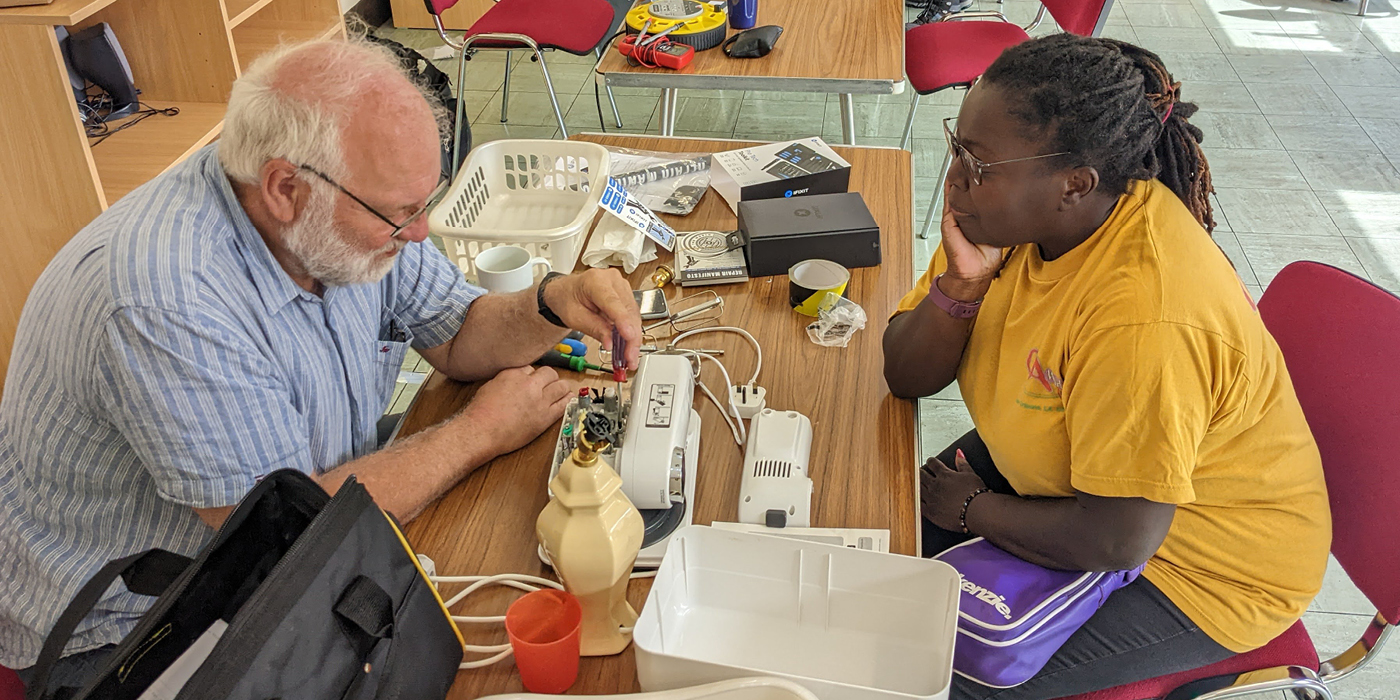
Croydonist: What three things would you encourage Croydon residents to do to help minimise their impact on the planet?
Ian: I hate these kinds of questions (smiley face). I hate them because they – unintentionally – force you to distil a complex response into a very limited number of punchy ‘solutions’. That said, I will do my best to cooperate (another smiley face).
First thing to say is that everyone’s environmental impact is different. Everyone’s circumstances are also different, in so many different ways. It’s also really important for people to realise that what we need to really bring down our impact on our precious environment, is not a few people living perfectly sustainable lives, but millions of people living imperfectly sustainable lives. In other words, it’s not about us doing absolutely everything perfectly sustainably or not at all, but within that space in between. It’s also really important to see this as a journey, which will be different for everyone for the reasons given above, and that the main thing is that we are all on it, and all try and keep on that journey, supporting each other on it.
But I’ve been asked for 3 things, so here they are:
1) I saw a BBC article a few months back now, that confirmed what I think at least most of us know already; that the vast majority of power and therefore responsibility for the problems of and therefore solutions to the climate & ecological crises lie with government and big business. Basically ‘the system’ as it is more generally referred to. As a result, we have to get political, and within this, the most important thing is that we all vote in all elections possible, and that when we vote we put social & environmental issues at the very top of our voting criteria. I’m not going to tell you who I think you should vote for – though it’s very tempting, especially now I have become politically active since the last 2 years – but what I would recommend is looking at the analysis of party policies that trusted organisations like Friends of the Earth and Greenpeace do at each General Election, so you don’t have to pour over manifestos etc, unless you are so inclined.
2) Learn about the climate and ecological crises and related issues, to be informed. I’m not saying become an expert and read everything of course, and read about solutions as well as problems, but learn more about it. There are also lots of videos and films these days that can be more digestible – Story of Stuff in the US has some great videos, and although they are quite US-centric, the vast majority of them hold true for any so-called developed nation. Just don’t be an ostrich, cause it ain’t going away; the opposite in fact if we don’t act fast and deep enough.
3) Vote with your wallet too. What we buy, how much we buy and where we buy from all has a big impact on our environmental footprint. The first thing we should be doing is reducing our consumption wherever we can, and across all spending categories. There are many, many ways of doing this – e.g. having less stuff, buying stuff that lasts for longer and can be repaired, getting stuff repaired, borrowing stuff, sharing stuff, selling stuff on after we don’t need/want it anymore. Where we buy from is also important, though for some items at least, this will depend on people’s economic situation, as it can cost more than the mainstream annoyingly (due to the warped economic model we’ve been following since WWII at least). But buying genuinely sustainable products, and from genuinely sustainable businesses, really helps reduce environmental impact as well as sends a message to the mainstream that people’s attitudes are changing.
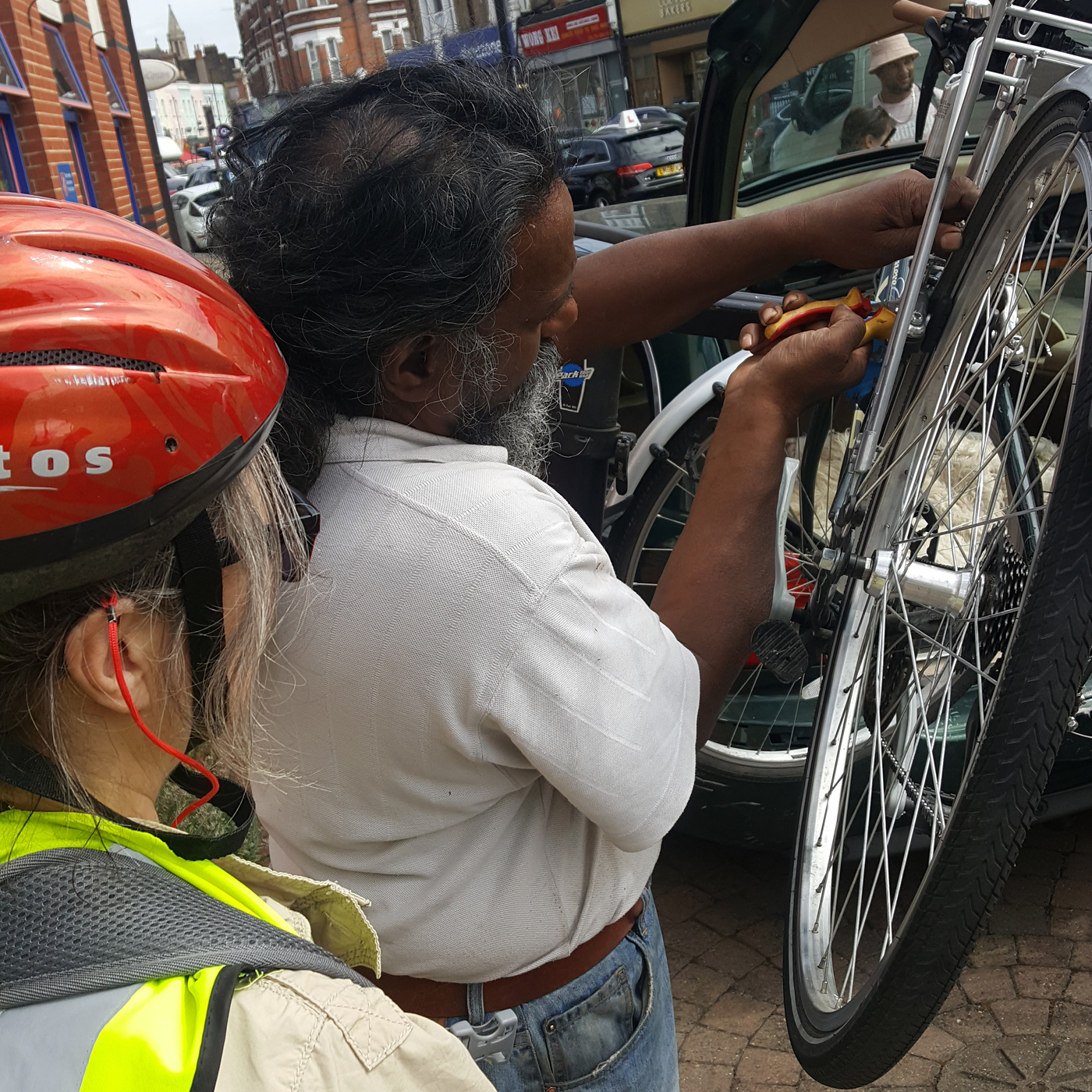
Croydonist: What’s next for Sustainable Thornton Heath?
Ian: Hubs are likely to remain the thrust of our activities, though we also now have a bi-monthly social, have a community coffee ground waste collection scheme to improve soil health in TH, and are talking to churches about the eco church scheme to try and get more engagement from faith communities. I also have an ambition to bring a visioning activity for TH into hubs, so that residents of all ages and backgrounds can share their ideas and designs for what a fairer, safer and greener TH looks like. This may need funding of its own to do it properly, but we could start a bit more low-key and build up.
We also want our membership to continue to grow, and with this have more ideas, energy and action, including people leading on relevant activities and initiatives that perhaps resonate with them particularly strongly. At the end of the day, ‘it’s all about the volunteers’, as a fellow community organiser told me a while back, which is so true.
Croydonist: Where in Croydon inspires you?
Ian: This is another hard one. I know this is a cliche, but it’s definitely more the people in Croydon than the geography that has and continues to inspire me. TH doesn’t have a great reputation, and now we have austerity at a local as well as national level, it does look really run-down in some places at times. But it really does seem to have a good sense of community, which I love.
Beyond TH, if it wasn’t for fellow activists, volunteers and others who give so much to society and our communities, then I’m quite sure I wouldn’t still be doing what I’m doing, in my so-called spare time.
I love the many green spaces in Croydon, from Grangewood Park to the beautifully kept Coombe Woods – except I believe in their infinite wisdom, Croydon Council has now axed the one gardener they had working there too [cue heavy sigh].
Thank you to Ian for chatting with us. You can find out more about Sustainable Thornton Heath on their website, and join their group on Facebook. This Saturday’s hub runs from 1-4pm at TH Salvation Army and is free to attend. Full details below.
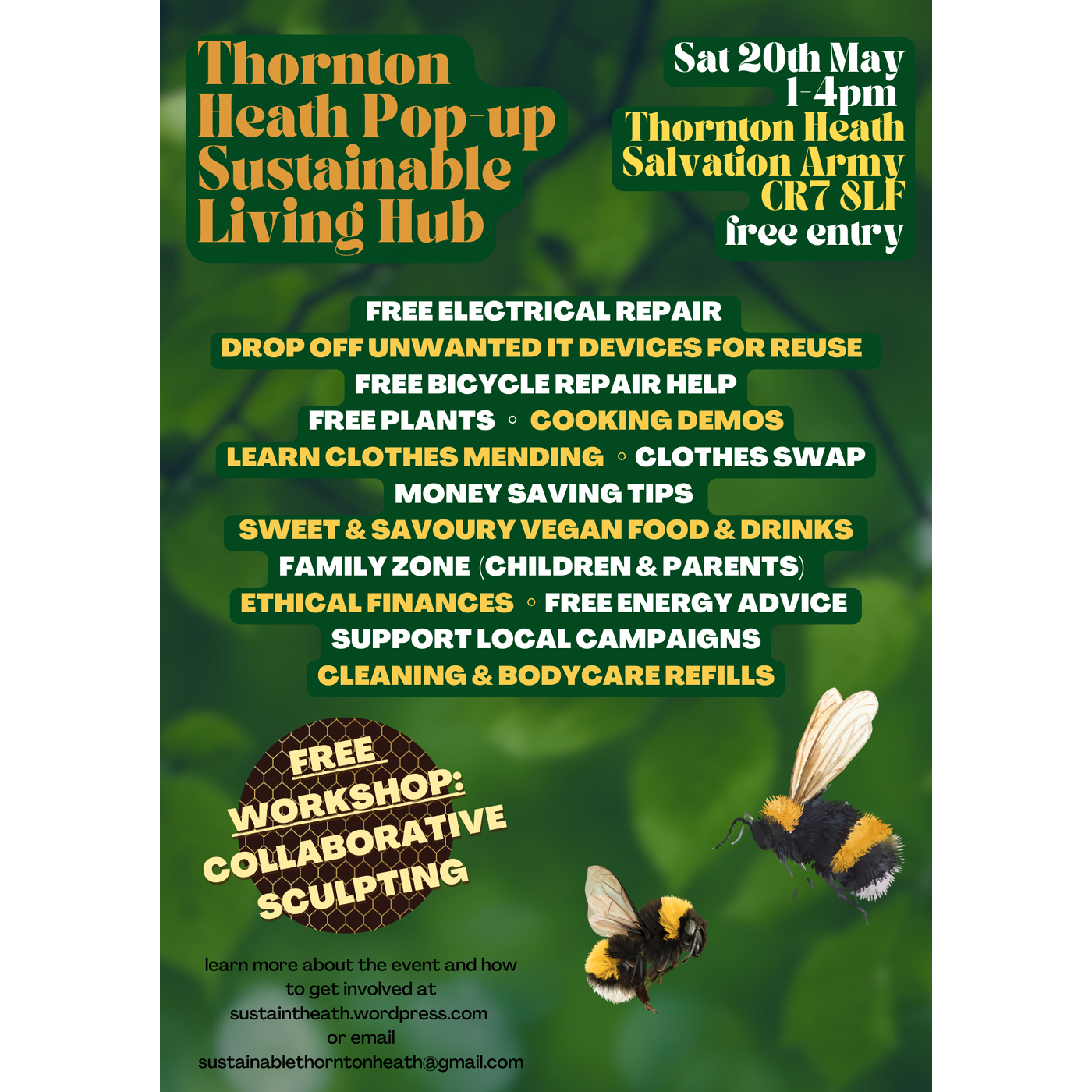
If you missed the other features in our Croydonist climate series you can read them below.
First in our Croydonist climate series was fashion, with Croydon Community Clothes Exchange – read it again here.
Second in our Croydonist climate series was travel, with eco-conscious luggage brand OneNine5 – read it again here.
Third in our Croydonist climate series was pets, with eco pet food brand Scrumbles – read it again here.
Fourth in our Croydonist climate series was art, with Tina Crawford’s ‘What a Waste’ exhibition – read it again here.
Fifth in our Croydonist climate series was shopping, with refill shops ‘Pedrick’s Zero Waste Shop’ and ‘Roots & Cycles’ – read it again here.
Sixth in our Croydonist climate series was party gifts with Plastic Free Party bags – read it again here.
Seventh in our Croydonist climate series was eco textile plant pot brand Knttd – read it again here.
Eighth in our Croydonist climate series was climate-smart coffee company Coromandel Coast – read it again here.
Ninth in our Croydonist climate series was local environmental group Croydon Climate Action – read it again here.
Tenth in our Croydonist climate series was the eco-community art project Norwood Junkaction – read it again here.
Eleventh in our Croydonist climate series was the eco-friendly wrapping paper company Deleco – read it again here.
Twelfth in our Croydonist climate series was Aycorn Garden Design – read it again here.
Thirteenth in our Croydonist climate series was microgreens business Hamsey Greens – read it again here.
Photos courtesy of Sustainable Thornton Heath. Header by Croydonist using Pixabay and Sustainable Thornton Heath imagery.
Posted by Julia
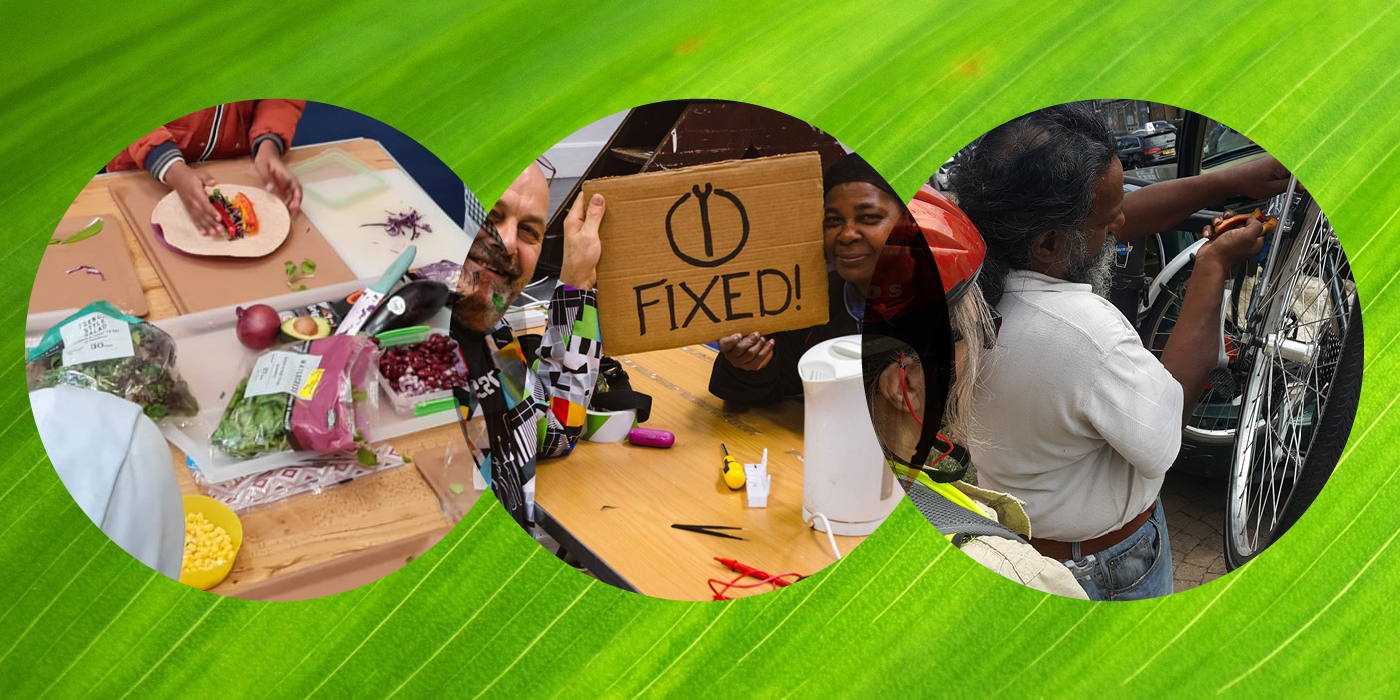

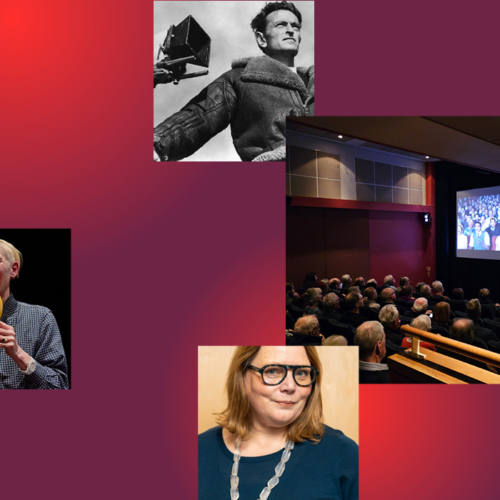
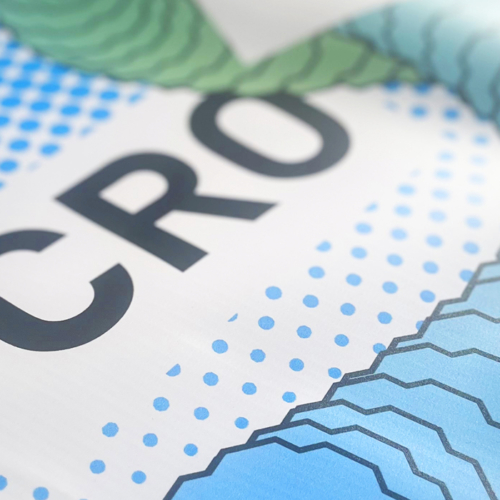

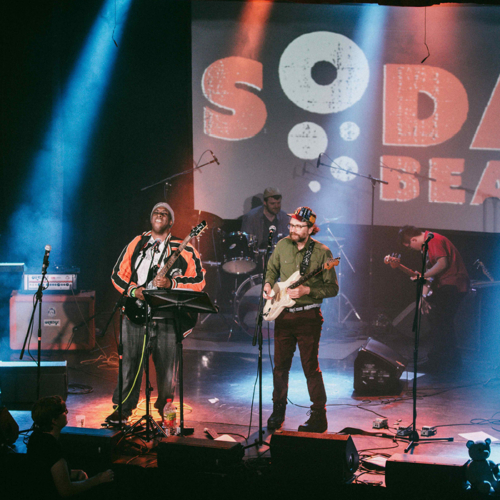
No Comments